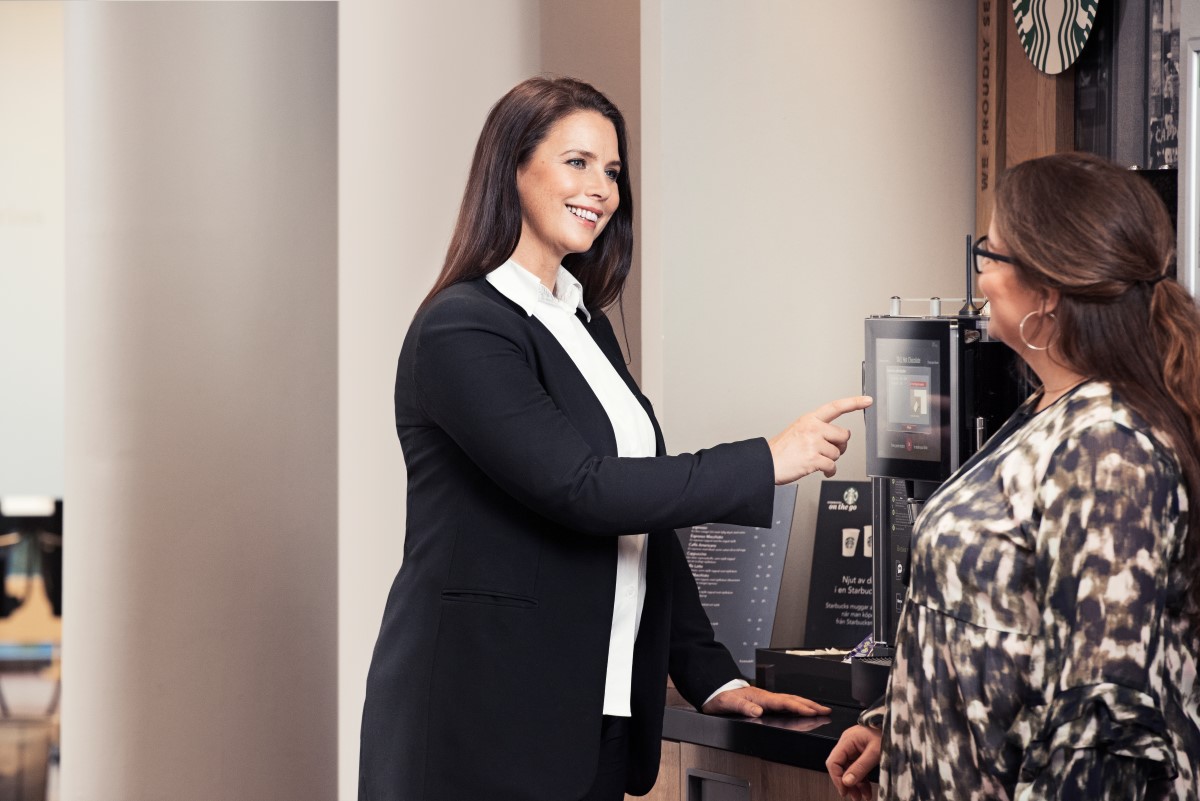A well-run workplace should meet the needs of its employees in order to create a pleasant and positive working environment. Deliveries and services should flow smoothly, the premises need to be clean, the rooms well-lit and the printers should work without a problem. As a service partner, the agreement between Coor and the customers is important because it guarantees that the services delivered match expectations.
"The idea is an agreement that proceeds from the service user’s perspective."
However, the workplace has changed after the pandemic with an increased focus on experiences. For the workplace to be an attractive destination, it needs to provide an experience that offers something more than working from home or a café. This is where XLAs come in—with the aim of outlining and measuring the experience of services or different parts of the workplace Coor has introduced agreements based on the service experience. "The idea is an agreement that proceeds from the service user’s perspective,” Joachim Meyer Andersen, Customer Experience Manager at Coor, explains.
“A successful XLA is produced alongside the customer and defines the type of experience that is desired as you enter reception, for example. What do you want people to think and feel as they walk in? If your aim is for your brand to inspire an energetic feeling you need to start from that. To do this, it is important that we inspire our customers and help them to deliver that experience,” Joachim Meyer Andersen explains.
The key factor is how being in the office affects how we feel during the working day. Compared to the traditional Service Level Agreement model, which is often based on operational parameters and efficiency, XLAs focus on defining the experience from the perspective of the service user.
"An XLA should proceed from the user experience of the services offered."
“SLAs work very well if you want to determine how frequently the workplace kitchen should be cleaned, for example, or the frequency of coffee deliveries. An XLA should proceed from the user experience of the services offered – what do you want them to think and feel? Like for other types of agreement, it should be possible to formulate this as a KPI,” Joachim explains.
For example, the taste of the morning coffee could constitute a KPI rather than the traditional parameter of “was coffee provided in the morning?”. This means that qualitative indicators are more important in XLAs. Follow-up and analysis are key factors for determining whether expectations have been met when new services are introduced. Was the intended user experience delivered or does it need to be recalibrated?
Understanding the needs and challenges that customers face is the first step when designing an XLA. Keeping the overall picture in mind is also an important part of the process, Joachim emphasizes, once you start working towards delivering a specific experience all the pieces of the puzzle need to be in place.
“When the service user enters the workplace you need to consider factors such as what music is being played, what aromas are sensed and the kind of greeting you get from the receptionist. How does this match the intended experience and is it a good fit with the company’s identity? This is what you need to think about.
The significance of creating carefully considered experiences in the office is already clear, Joachim explains. This will also be an important factor in how employees view the workplace and how eager they are to remain there.
“The office has started to compete with the home office, cafés, co-working places and even holiday homes. But perhaps most importantly, your company offices are competing with other companies’ offices. This means that the workplace experience is becoming an even more important factor for retaining and attracting new talent,” Joachim explains.

